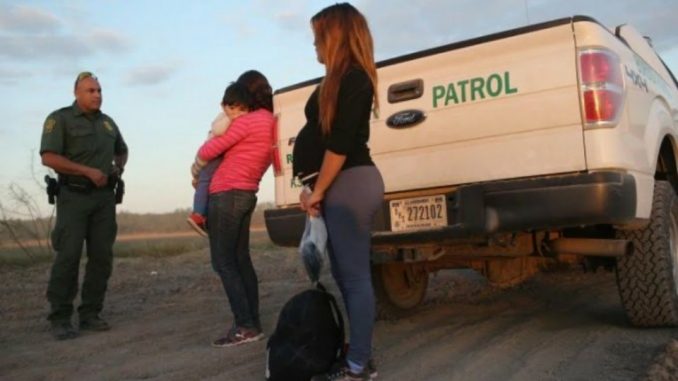
In a move to curb “birth tourism,” the Trump administration issued visa guidelines Thursday that could make it more difficult for some pregnant women to get visas to visit the USA.
The new rules apply to applicants for a visa for business, pleasure, tourism and medical visits.
Under the new guidelines, which take effect Friday, applicants deemed by consular officers to be coming to the USA primarily to give birth will be treated like foreigners coming for medical treatment – they must prove they have the money to pay for it, including transportation and living expenses.
Under the Constitution, anyone born in the USA is considered a citizen. Though the practice of traveling to the USA to give birth is not illegal, authorities have arrested operators of birth tourism agencies for visa fraud or tax evasion.
The State Department noted that investigations of birth tourism found that operators often fabricated financial documents, used false information to lease apartments and charged individuals as much as $100,000 for the service.
“This rule will help prevent operators in the birth tourism industry from profiting off treating U.S. citizenship as a commodity, sometimes through potentially criminal acts,” the State Department said.
The State Department warned that birth tourism poses risks to national security and is “rife with criminal activity, including international criminal schemes.”
Later in the day, during a briefing with reporters, the State Department said there was no specific data on the number of women who come to the US annually to give birth but estimated the were thousands of such cases.
The potential loophole represents a national security risk, the State Department concluded. But it could not cite any specific instance in which a child born in the U.S. under these circumstances later came to pose a threat to the United States.
Implementing the guidelines could be problematic. Under the rules consular officers will not be able to require female applicants to take pregnancy tests and they have been “directed not to ask all female applicants if they are pregnant or intend to become pregnant.”
Visa officers will use other ways to determine if a woman is planning to come to the U.S. to give birth to a child, such as self-reporting on a visa application, according to the State Department briefing.
The issue would only be raised at the time of the application for the visa, which could be valid for 10 years.
The policy raises questions as to whether a woman could be turned away by border officers who suspected she might be pregnant just by looking at her.
Though focused on organized birth tourism operators, the State Department suggested the rule could be applied against individuals.
“While this rule will not preclude visa issuance to all aliens who may give birth in the United States, it recognizes the risks posed by allowing the previous visa policy to continue,” the State Department said.
It said the rule “addresses some of those national security threats that exist when aliens, who may have no ties to, or constructive interest in, the United States, easily are able to obtain U.S. citizenship for their children, through birth in the United States.”
President Donald Trump has repeatedly complained about birth tourism and “anchor babies,” whose foreign parents could use that connection to gain U.S. citizenship.
In 2018, Trump told Axios he would issue an executive order to end the right to citizenship for babies of noncitizens and unauthorized immigrants born on U.S. soil.
“It was always told to me that you needed a constitutional amendment. Guess what? You don’t,” Trump said.
The Center for Immigration Studies, a group that advocates for stricter immigration laws, estimated that in 2012, about 36,000 foreign-born women gave birth in the USA, then left the country.
*story by USA Today